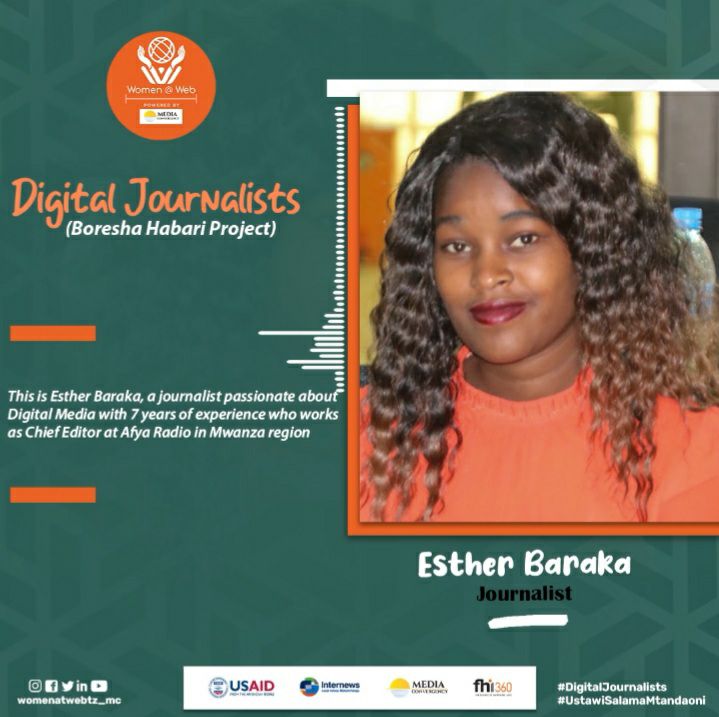
Journalists around the world are increasingly turning to digital technology to help address daunting challenges such as the spread of misinformation and growing attacks on reporters which revealed that journalists were struggling at that time to keep pace with the digital revolution.
The article has been inspired by a panel discussion hosted by Women at Web Tanzania project powered by Tech & Media Convergency. There is a major shift afoot as news outlets come under attack digitally and physically, the newsrooms are embracing a range of digital tools to secure their communications and ensure the veracity of their information: More than two-thirds of journalists and newsrooms secure their communications.
Digital Media isn’t about the Internet itself, but rather about people’s ability to utilize digital era to replace traditional news outlets; It is the process of leveraging advancements and innovating with technology to reimagine how digital information sharing is done. The development of digital media has delivered innovations and prompted architectonic shifts in all aspects of journalism practice, the journalism industry and scholarly research in the field of journalism studies.
This is to expanding focus on practical journalism research as uniquely positioned to gain insights on key trends in the industry at a time of rampant disinformation and crackdowns against the media. For our Tanzanian local context, Digital media in the Future of Journalism has adapted the modal of copying exactly how the instigators of Digital media apply it to journalism drawn more in context of how information is gathered and obtained by their consumers which is strikingly different from the Tanzanian consumers. The Tanzania Media landscape has to deliberately apply digital Innovation by understanding to it’s consumers, new information dynamics and most importantly avoid being rigid by pushing in the etiquettes of traditional media onto new media.
There is an urgent need to adopt Digital Skills to fill in the Journalism knowledge gap that Digital media goes hand in hand with Digital Skills in a various form by merging online and offline efforts merely effectiveness. The core challenge of the digital media and journalism that has been identified since mainstream media is basic skills in digital innovation, this is a chance to be rectified by the use of technological innovation. Digital innovations emboldening the viability of the future of journalism for the Tanzanian context, has great potential pushed by a variety of facts.
There is no online quality content addressing challenges and general knowledge and information from the local context. However, there is an extreme growth of local content but most of it non-constructive for the end-users, mostly are only gossips and if they are not then they will be from unreal publishers. Digital-only newsroom growth is flat or down everywhere except in Tanzania suggesting that fewer online start-ups are launching. The biggest decline in digital-only news outlets has been in last five years during to the strictly government regulations.
Technical experts are still few and far between in newsrooms. It’s approximately only 4% of newsroom staff are tech professionals. Journalists and their employers differ on the specialized training needed in the newsroom. While newsrooms mostly offer training in video and audio production, journalists are eager for more training on topics such as cyber security, podcasting, fact-checking tools and promoting work on social media. The gap in demand and availability is largest in using and understanding AI (artificial intelligence).
Some of professional content generators are not active on the online space which makes the general public to believe that only traditional media are the elites. In recent case, one of Tanzania’s Regional Commissioner cited that she’d prefer only state-owned media outlet rather than ‘shareable links’. The task now for Digital media is how to change the mind-set of this group to be willing to be part of digital journalism capacity building so that they can be reliable and dependable online content generators in a productive way that could benefit them as well.
